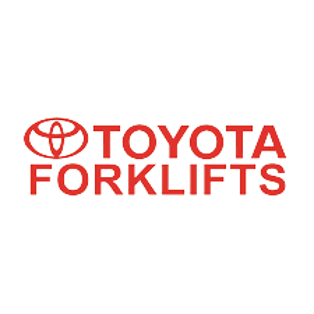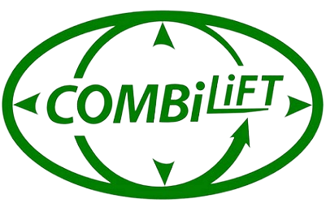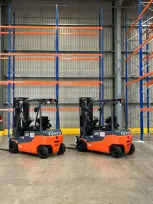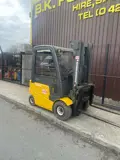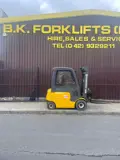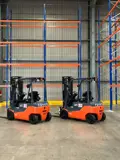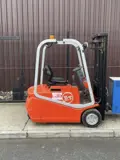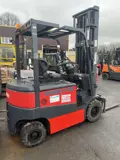ELECTRIC FORKLIFTS
In Action
BK Forklifts offers a range of new and used electric forklifts for both sale and hire. We provide various types, including counterbalance forklifts, reach trucks, and order pickers. Their forklifts are suitable for both indoor and outdoor use, providing high power with zero emissions.
Electric Forklifts
Electric forklifts are a type of forklift powered by electric motors and batteries, as opposed to internal combustion engines that run on fuel. They are commonly used in warehouses, distribution centers, manufacturing facilities, and other indoor environments. Here's an overview of electric forklifts:
Advantages of Electric Forklifts:
-
Environmentally Friendly: Electric forklifts produce zero emissions at the point of use, making them environmentally friendly and suitable for indoor applications where air quality is a concern.
-
Quiet Operation: Electric forklifts operate more quietly than their internal combustion counterparts, making them suitable for noise-sensitive environments.
-
Lower Operating Costs: Electric forklifts have lower operating costs over time since electricity is generally less expensive than fuel. Additionally, electric forklifts have fewer moving parts, leading to reduced maintenance needs.
-
Efficiency: Electric forklifts tend to have higher energy efficiency compared to internal combustion forklifts, which can lead to longer operating hours between battery charges.
-
Improved Operator Comfort: Electric forklifts produce less vibration and noise, leading to a more comfortable working environment for operators.
-
No Fuel Storage: Electric forklifts eliminate the need for on-site fuel storage, which can be a safety and space concern.
Considerations for Electric Forklifts:
-
Battery Life and Charging: Electric forklifts are powered by batteries, and battery life can affect productivity. Proper battery management, including regular charging and maintenance, is crucial.
-
Charging Infrastructure: Adequate charging infrastructure, such as charging stations and battery changing areas, is needed to ensure uninterrupted operation.
-
Initial Cost: Electric forklifts often have a higher upfront cost compared to internal combustion forklifts. However, this cost difference can be offset by lower operating and maintenance expenses over time.
-
Limited Outdoor Use: Electric forklifts are best suited for indoor applications due to their battery power. They may not be ideal for heavy outdoor use or applications requiring extended runtimes.
-
Charging Time: Charging electric forklifts takes time. Operations should plan for battery charging and rotation to maintain continuous productivity.
-
Weight: Electric forklifts tend to be heavier due to the weight of the batteries. This can affect load capacity and maneuverability.
-
Battery Replacement: Eventually, batteries will need to be replaced, and this can be a significant expense. Proper battery maintenance can extend their lifespan.
Electric forklifts come in various sizes and configurations to suit different applications. When considering an electric forklift, assess your specific operational needs, evaluate the available charging infrastructure, and calculate the potential long-term cost savings. It's advisable to consult with forklift dealers or professionals to determine the best electric forklift model for your requirements.

